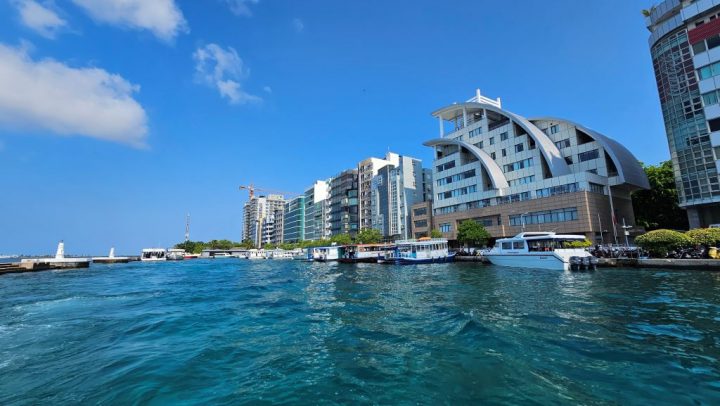
Fitch affirms Maldives’ B- rating, cites economic and financial challenges
Fitch Ratings, a leading global credit rating agency, has affirmed the Maldives’ Long-Term Foreign-Currency Issuer Default Rating (IDR) at ‘B-‘ with a Negative Outlook. This decision is based on a careful assessment of various economic and financial factors affecting the nation.
Here are the key rating drivers and highlights from Fitch’s assessment:
Negative Outlook:
- The ‘B-‘ rating reflects several positive factors, including a favorable GDP growth outlook driven by the tourism sector, high per capita GDP compared to ‘B’ category peers, and continued financial support from bilateral and multilateral sources.
- However, this rating is counterbalanced by the Maldives’ high and rising government debt, low foreign-reserve buffers, and vulnerability to shocks that could affect the tourism industry.
- The Negative Outlook indicates the risk of increased external financing and liquidity pressures, which could threaten the currency peg to the US dollar.
Low Foreign-Reserve Buffers:
- Foreign reserves are under pressure due to high import costs, interventions to support the currency peg, and declining reserves.
- Foreign-reserve coverage of current external payments is projected at just 1.1 months in 2023, well below the ‘B’ category median of 3.5 months.
Rising External Debt Servicing:
- The Maldives faces challenges in refinancing external debt, with significant obligations in 2024 and beyond.
- The government’s external debt servicing will increase, reaching a peak of USD 887 million in 2026, including repayment of a USD 500 million sukuk.
Persistently High Current Account Deficit (CAD):
- The CAD is expected to remain elevated, driven by import dependence on basic food products, energy, and capital goods.
- In 2024, the CAD is projected to be about 14.0% of GDP, significantly higher than ‘B’ category peers.
Slow Fiscal Consolidation:
- The fiscal deficit is expected to narrow but remain high, primarily due to subsidies and infrastructure spending.
- Public debt is projected to rise to 101.7% of GDP in 2025, well above the ‘B’ category median.
Political Stability:
- Opposition candidate Dr. Mohamed Muizzu won the presidential run-off vote in September 2023.
- While his election brings some near-term policy uncertainty, a smooth political transition is expected with a focus on supporting the tourism sector and infrastructure development.
Strong Growth Prospects:
- Fitch forecasts economic growth of 7.2% in 2023, driven by tourism.
- Medium-term growth is expected to be supported by tourism and infrastructure development.
Low Banking-Sector Risks:
- The domestic banking sector remains well-capitalized and non-performing loans are stable.
- High dollarization in the banking system constrains potential sovereign support.
ESG Considerations:
- The Maldives’ ESG Relevance Score reflects the country’s political stability, rule of law, institutional quality, and control of corruption.
- The recent peaceful political transition has a positive impact on the credit profile.
Rating Sensitivities:
- Factors that could lead to a negative rating action include heightened external financing pressures and a sustained rise in government debt.
- Positive rating action could result from strengthening external buffers and significant progress in fiscal consolidation.
Fitch’s assessment provides valuable insights into the economic and financial challenges facing the Maldives, as well as the country’s strengths and weaknesses. The Negative Outlook underscores the need for the Maldives to address its financial vulnerabilities and bolster its resilience against external shocks.
Please note that the information provided here is based on Fitch Ratings’ assessment as of October 9, 2023, and is subject to change based on evolving economic and financial conditions.






